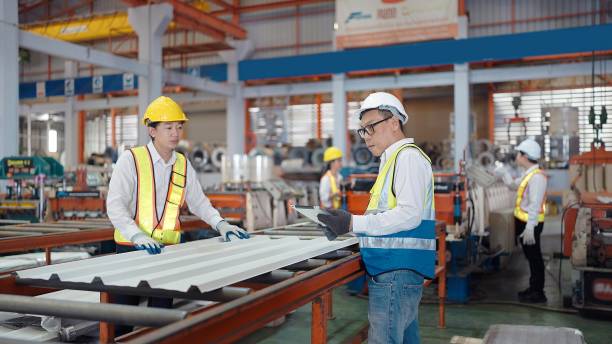Construction Jobs in Japan for Foreigners: How to Start Your Career in 2025
Japan’s construction industry is actively hiring foreign workers, especially in cities like Tokyo. This article explains how to apply for construction jobs in Japan as a foreigner, which roles are in demand, and what you need to get hired, even with limited Japanese skills.

What types of construction jobs are available for foreigners in Japan?
The Japanese construction industry offers a wide range of positions for foreign workers, particularly in urban areas like Tokyo. Some of the most common roles include:
-
General labor: This involves basic construction tasks such as carrying materials, cleaning work sites, and assisting skilled workers.
-
Scaffolding: Erecting and dismantling scaffolding structures for various construction projects.
-
Machinery operation: Operating heavy equipment like cranes, excavators, and bulldozers.
-
Carpentry: Working with wood to create structures, frames, and other building components.
-
Electrical work: Installing and maintaining electrical systems in buildings and infrastructure projects.
-
Plumbing: Installing and repairing water and gas systems in construction projects.
These roles often have varying levels of expertise, from entry-level positions to more advanced roles for experienced professionals.
What are the legal requirements for foreigners working in construction in Japan?
To work in the Japanese construction industry as a foreigner, you’ll need to meet several legal requirements:
-
Visa: You must obtain a proper work visa, typically a “Specified Skilled Worker” visa for construction jobs.
-
Language proficiency: While not always mandatory, basic Japanese language skills (JLPT N4 level or higher) are often required or highly beneficial.
-
Employer sponsorship: A Japanese company must sponsor your visa application and offer you a job.
-
Skills assessment: Depending on the role, you may need to pass a skills test to prove your qualifications.
-
Health insurance: You’ll need to enroll in the Japanese national health insurance system.
-
Residence card: Upon arrival, you’ll receive a residence card, which you must carry at all times.
How can foreigners find construction job opportunities in Japan?
To find construction jobs in Japan as a foreigner, consider the following steps:
-
Use online job boards: Websites like GaijinPot, Jobs in Japan, and Daijob often list construction positions for foreigners.
-
Contact recruitment agencies: Many agencies specialize in placing foreign workers in Japanese construction jobs.
-
Network: Join online forums or social media groups for expatriates working in Japan’s construction industry.
-
Attend job fairs: Some organizations host job fairs specifically for foreigners seeking work in Japan.
-
Learn basic Japanese: Even rudimentary language skills can significantly improve your job prospects.
-
Obtain relevant certifications: Having recognized qualifications in your field can make you a more attractive candidate.
What skills and qualifications are most valued in Japan’s construction industry?
Japan’s construction industry values a combination of technical skills and personal qualities:
-
Technical expertise: Proficiency in specific construction trades or machinery operation.
-
Safety awareness: Strong understanding of and commitment to workplace safety protocols.
-
Attention to detail: Japanese construction is known for its precision and quality.
-
Teamwork: The ability to work harmoniously in a group-oriented culture is crucial.
-
Adaptability: Willingness to learn new techniques and adapt to Japanese work culture.
-
Physical fitness: Many construction roles require stamina and strength.
-
Basic Japanese language skills: While not always mandatory, they are highly advantageous.
-
Relevant certifications: Qualifications from your home country or internationally recognized certifications can be beneficial.
What unique challenges might foreigners face in Japanese construction jobs?
Working in Japan’s construction industry as a foreigner comes with its own set of challenges:
-
Language barrier: Many worksites primarily use Japanese for communication.
-
Cultural differences: Japanese work culture may differ significantly from what you’re accustomed to.
-
Long working hours: The construction industry in Japan is known for its demanding schedules.
-
Climate adaptation: Depending on your origin, you may need to adjust to Japan’s climate, including hot summers and cold winters.
-
Housing: Finding suitable accommodation near your work site can be challenging, especially in major cities.
-
Career advancement: Progressing to higher positions may be more difficult for foreign workers.
-
Work-life balance: The Japanese work culture often prioritizes long hours and dedication to the job.
How much can foreigners expect to earn in Japanese construction jobs?
The salary for construction jobs in Japan can vary widely depending on factors such as experience, specific role, and location. Here’s a general overview of potential earnings:
| Position | Experience Level | Monthly Salary Range (JPY) |
|---|---|---|
| General Labor | Entry-level | 180,000 - 250,000 |
| Skilled Labor | 2-5 years | 250,000 - 350,000 |
| Machinery Operator | 3-7 years | 300,000 - 400,000 |
| Site Supervisor | 5+ years | 400,000 - 600,000 |
| Project Manager | 10+ years | 600,000 - 1,000,000+ |
Prices, rates, or cost estimates mentioned in this article are based on the latest available information but may change over time. Independent research is advised before making financial decisions.
It’s important to note that these figures are estimates and can vary based on the specific employer, project, and your qualifications. Additionally, many companies offer benefits such as housing allowances, transportation subsidies, and bonuses, which can significantly increase the overall compensation package.
In conclusion, the Japanese construction industry offers promising opportunities for foreign workers, especially as the country continues to address its labor shortage. By understanding the legal requirements, developing relevant skills, and adapting to the local work culture, you can successfully start your construction career in Japan in 2025 and beyond. While challenges exist, the rewards of working in this dynamic industry in one of the world’s most advanced economies can be substantial.




